23rd-24th March, 2021. Virtual ENIUS Worshop.
In order to participate in this Workshop it is mandatory to send an abstract (maximum of 300 words) related to any of the ENIUS topics. Attendees will defend their abstract on the second day of the workshop (7 minutes).
Email contact: eniuscost@gmail.com
Lecturers
- Dr. Qun Ren (EMPA, Switzerland).
Qun.Ren@empa.ch - Dr. Syed Tofail (Bernal Institute-University of Limerick, Ireland).
Tofail.Syed@ul.ie - Dr. Chaitra Venkatesh (Atholone Institute of Technology, Ireland).
c.venkatesh@research.ait.ie - Prof. Michael Walsh. (Bernal Institute-University of Limerick, Limerick, Ireland).
michael.walsh@ul.ie - Dr. Eoghan Cunnane. (Bernal Institute-University of Limerick, Limerick, Ireland).
eoghanmcunnane@gmail.com - Prof. Yu-Fen Chang and Prof. Boris V. Balakin. (Western Norway University of Applied Sciences, Norway).
yu-fen.chang@uit.no Boris.balakin@hvl.no - Dr. Letizia Fracchia. (Università degli Studi del Piamonte Orientale Amedeo Avogadro, Vercelli, Italy).
letizia.fracchia@uniupo.it - Dr. Jochen Salber. (Universitätsklinikum Knappschaftskrankenhaus Bochum, Germany).
jochen.salber@hotmail.com
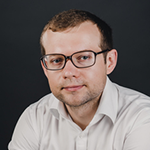
Boris V. Balakin
Western Norway University of Applied Sciences, Norway
Ongoing efforts have been devoted to overcome the failure and complications that are associated with ureteral stents through development in stent materials, design, and characterisation methods.
The stent materials and design, together with the varying anatomical geometry and obstruction, affect the flow field that has great influence on the development of the medical condition.
Therefore, experimental and computational methods for investigating the flow field in detail are being developed.
A noninvasive technique for unveiling the flow trajectories in opaque systems, position emission particle tracking (PEPT), has been developed by the Norwegian PEPT consortium and can be of great use for visualising and investigating the flow field arose from the subtle details and interaction of ureters with stents.
The PEPT technique, previous experience in computational simulation on medical devices and anatomical structures, as well as an introduction of the Tromsø PET Imaging Center and the University Hospital of North Norway will be presented.
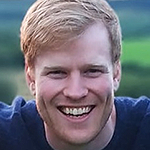
Eoghan Cunnane
Dr Eoghan Cunnane received his PhD in diseased tissue characterisation at the University of Limerick before completing fellowships in regenerative medicine at the MacGowan Institute for Regenerative Medicine (Pittsburgh), the Royal College of Surgeons in Ireland and Imperial College London. Dr Cunnane is well published in the fields of biomedical engineering and regenerative medicine with over 40 peer reviewed publications, in addition to co-authoring 3 full patents and multiple invention disclosures. Dr Cunnane has been involved in the acquisition of research funding from Irish, UK and European sources amounting to more than $900,000. Dr Cunnane is a co-founder of Class Medical which was spun out of the University of Limerick to commercialise novel urinary catheter technology, which recently received CE marking. Dr Cunnane is also a guest editor for Frontiers journals, a reviewer for numerous engineering journals and has given invited talks on his research both nationally and internationally.
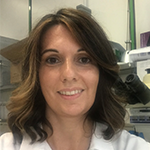
Letizia Fracchia
Università degli Studi del Piamonte Orientale Amedeo Avogadro, Vercelli, Italy.
letizia.fracchia@uniupo.it
Letizia Fracchia obtained her PhD in Environmental Sciences in 2004. She then had research experiences at Universidad Nacional de Rosario (Argentina, visiting researcher) and University of Ulster (visiting scientist).Currently, she is Associate Professor of Microbiology at the Department of Pharmaceutical Sciences at the Università del Piemonte Orientale (UPO). Her main research interests include biosurfactant-based coatings for the inhibition of microbial adhesion and multi-species biofilms on materials for medical use (silicone, titanium), the lipoaspirate as an antimicrobial and bioactive scaffold in wound healing and the study of the antimicrobial and anti-biofilm activity of Guayule resin.
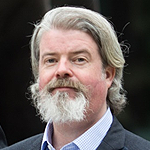
Michael Walsh
Prof. Michael Walsh currently serves as Head of Discipline for Biomedical Engineering in the School of Engineering as well as being a member of both the Bernal Institute and the Health Research Institute at the University of Limerick, Ireland. His lab undertakes both basic and applied research in the vascular and urological spaces. To date he has secured €6million in grant funding (33 awards) as a PI from sources including national, industrial and the EU. He has mentored 10 post-doctoral researchers and graduated 23 PhD students and 18 MSc students. He has published >100 peer-reviewed journal papers (h-index = 33). He has 4 granted patents and a spin-out company and he currently serves as founding Director and Chief Scientific Officer in his start-up company Class Medical.

Rune Sundset
University Hospital of North Norway and UiT The Arctic University of Norway
Ongoing efforts have been devoted to overcome the failure and complications that are associated with ureteral stents through development in stent materials, design, and characterisation methods.
The stent materials and design, together with the varying anatomical geometry and obstruction, affect the flow field that has great influence on the development of the medical condition.
Therefore, experimental and computational methods for investigating the flow field in detail are being developed.
A noninvasive technique for unveiling the flow trajectories in opaque systems, position emission particle tracking (PEPT), has been developed by the Norwegian PEPT consortium and can be of great use for visualising and investigating the flow field arose from the subtle details and interaction of ureters with stents.
The PEPT technique, previous experience in computational simulation on medical devices and anatomical structures, as well as an introduction of the Tromsø PET Imaging Center and the University Hospital of North Norway will be presented.

Yu-Fen Chang
Western Norway University of Applied Sciences, Norway
Ongoing efforts have been devoted to overcome the failure and complications that are associated with ureteral stents through development in stent materials, design, and characterisation methods.
The stent materials and design, together with the varying anatomical geometry and obstruction, affect the flow field that has great influence on the development of the medical condition.
Therefore, experimental and computational methods for investigating the flow field in detail are being developed.
A noninvasive technique for unveiling the flow trajectories in opaque systems, position emission particle tracking (PEPT), has been developed by the Norwegian PEPT consortium and can be of great use for visualising and investigating the flow field arose from the subtle details and interaction of ureters with stents.
The PEPT technique, previous experience in computational simulation on medical devices and anatomical structures, as well as an introduction of the Tromsø PET Imaging Center and the University Hospital of North Norway will be presented.
CONTACTS Organizers:
- Prof. Gianluca Ciardelli.
Gianluca.ciardelli@polito.it - Dr. Alexandre Barros.
abarros@hydrumedical.pt - Dr. Syed Tofail.
Tofail.Syed@ul.ie - Dr. E. Ocearbhaill.
eoin.ocearbhaill@ucd.ie - Dr. F. Soria. (ENIUS Chairman).
fsoria@ccmijesususon.com
